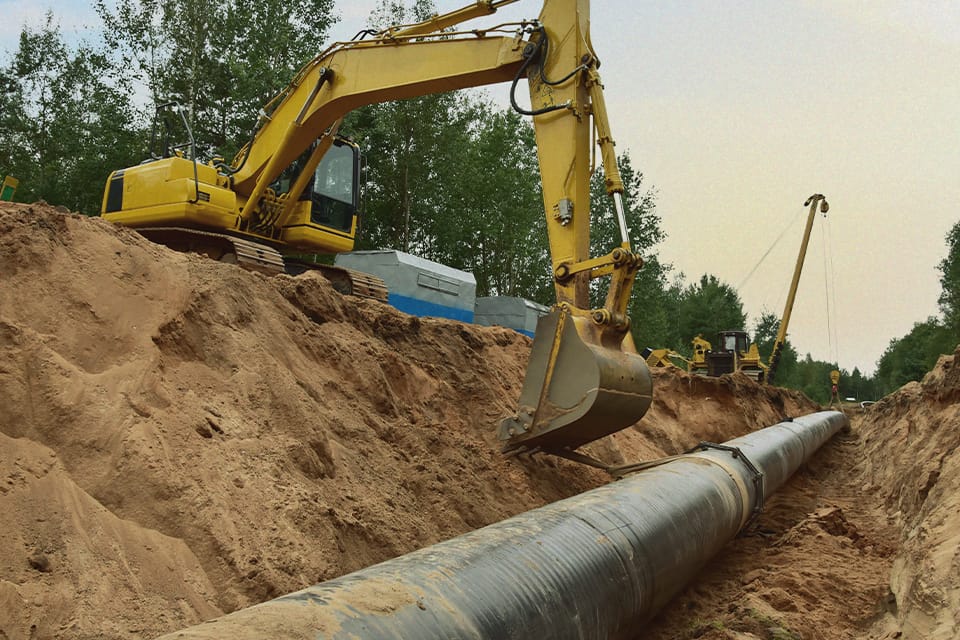
Managing Anxiety Around Switching OQ Programs in the Pipeline Industry

In the pipeline industry, safety and regulatory compliance are critical. A central part of this effort is the Operator Qualification (OQ) program, which ensures that workers performing covered tasks are trained, tested, and certified.
However, switching OQ program providers can cause anxiety. Pipeline operators often worry about downtime, compliance issues, or operational disruptions. These concerns are valid, but they don’t have to derail your operations.
This article explores common concerns operators face when switching OQ providers and explains how Veriforce helps reduce risk and ease the transition.
Common Concerns When Switching OQ Providers in the Pipeline Industry
1. Disruption to Operations
One of the biggest fears is that switching providers will interrupt operations. Operators often worry about delays in training, recertification, and requalification. These delays can lead to missed deadlines or even halted projects.
Administrative processes may also be affected. When systems are in flux, there’s a risk of critical tasks being overlooked.
2. Compliance Gaps
In the pipeline industry, compliance is non-negotiable. Regulatory penalties can be steep, and lapses in certification can jeopardize safety.
During a provider switch, there’s a fear of falling short of federal and industry standards. Even small gaps in compliance can have significant downstream effects.
3. Integration with Existing Systems
Many pipeline operators use custom-built systems to track worker qualifications and tasks. Switching to a new provider may raise concerns about compatibility and data loss.
If the new OQ system doesn’t integrate well, operational efficiency can take a hit.
4. Accuracy and Consistency of Covered Task Lists
Covered task lists are essential for verifying worker qualifications. Operators want to know that a new provider’s task list is comprehensive and aligned with standards like B31Q or API 1161.
They also want assurance that switching won’t result in task gaps or inconsistencies.
5. Training and Knowledge Transfer
Switching providers usually means adopting new software and procedures. Operators may worry about how quickly staff can learn the new system and whether all users will receive proper training.
These concerns are especially pressing for large teams spread across multiple locations.
How Veriforce Supports the Pipeline Industry
At Veriforce, we understand these concerns because we’ve helped many clients in the pipeline industry transition successfully. We’ve built our OQ solution around reducing friction, improving compliance, and supporting you every step of the way.
1. A Dedicated Regulatory Compliance Specialist
Every Veriforce client is assigned a dedicated Regulatory Compliance Specialist (RCS). This person serves as your main point of contact throughout the transition and beyond.
Our RCS team brings deep industry knowledge, with many members having worked directly with pipeline operators. Several have contributed to key industry standards such as B31Q. This experience helps them anticipate your needs and address challenges before they become problems.
2. Streamlined Onboarding Process
Our onboarding begins with a full review of your existing task list, whether it’s custom-built or based on a recognized standard. We can easily integrate your current list into our platform.
Alternatively, you can use our Common Covered Task (CCT) List, built in collaboration with clients across the pipeline industry. The CCT List is updated quarterly through steering committees and stays aligned with evolving standards like API 1161.
3. Guaranteed Compliance and Consistency
Our CCT List is fully aligned with federal and industry regulations. Whether you adopt our list or use your own, we help ensure there are no compliance gaps.
You can trust that workers will be properly qualified and your OQ program will remain fully compliant.
4. Easy Integration with Existing Systems
Veriforce is designed to integrate with your current systems, whether they’re legacy tools or modern platforms. We prioritize smooth data transfer and minimal disruption.
Our team works closely with yours to ensure a seamless technical transition. This keeps your workflows intact and reduces downtime.
5. Ongoing Support and Program Optimization
Our commitment doesn’t end after onboarding. We continue to support you with expert guidance, updates to regulations, and best practices.
If questions or concerns arise, your RCS and our support team are always available. This helps you maintain safe and compliant operations in the long term.
Conclusion
Changing OQ providers in the pipeline industry may feel overwhelming, but it doesn’t have to be. With the right support, the process can be manageable and even beneficial.
At Veriforce, we don’t just offer software. We provide a partnership. From onboarding to ongoing support, we guide you every step of the way.
Our deep industry expertise, regulatory alignment, and client-first approach help you make a confident transition. You’ll maintain compliance, avoid disruptions, and continue to focus on what you do best: operating your pipeline safely and efficiently.
Contact us today and allow a Veriforce OQ expert to help you with all your OQ challenges.




